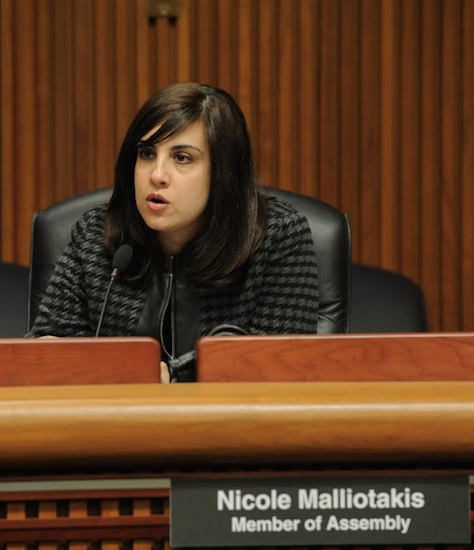Malliotakis vows to work with Cuomo to help mentally ill
GOP mayoral candidate introduces 12-point plan

Nicole Malliotakis says current city policy toward the severely mentally ill has resolved in a revolving door of incarceration for patients. Photo courtesy of Malliotakis’s campaign
Assemblymember Nicole Malliotakis, the presumed Republican nominee for mayor, said she would be willing to work with Gov. Andrew Cuomo to solve the public safety risk posed by New Yorkers with severe mental illnesses.
A few days after publicly unveiling her 12-point “Treatment B4 Crisis Plan” to help the mentally ill, Malliotakis said that unlike Mayor Bill de Blasio, who is often at odds with the governor, she would work with him.
“I would work with the governor on this issue,” Malliotakis told the Brooklyn Eagle.
